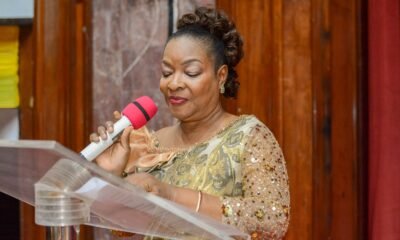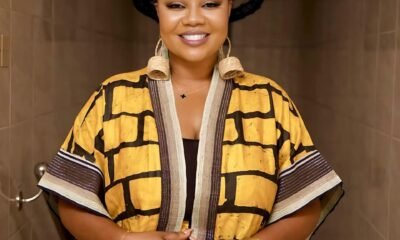News
“The Silent Struggles of Deaf Pregnant Women Accessing Healthcare in Ghana”
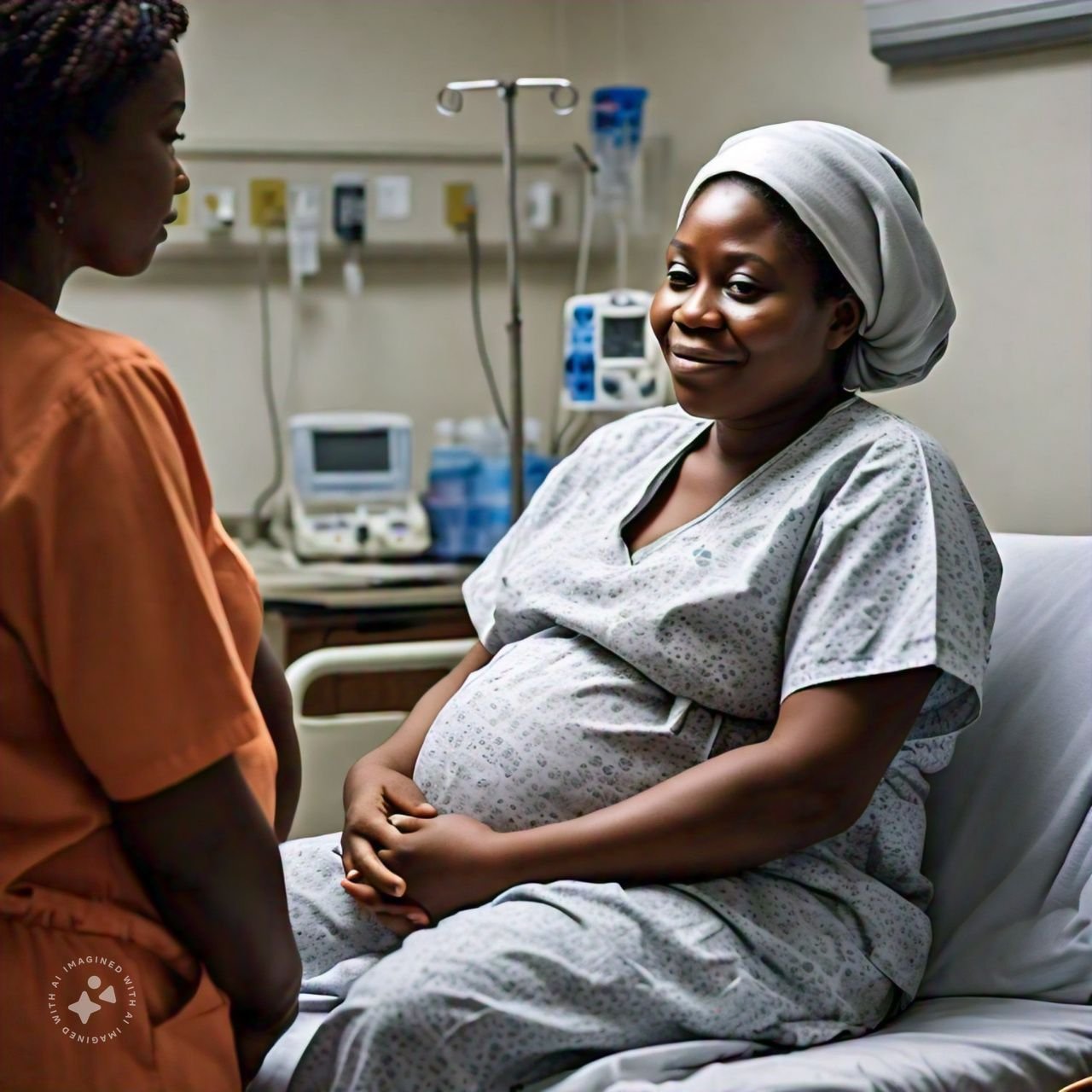
A baby’s first cry needs no translation, no interpreter, and no explanation. Yet, for deaf mothers, their own cries for help and understanding echo silently through Ghana’s healthcare system.
In crowded waiting rooms, they watch other mothers freely communicate with healthcare providers, sharing joys and concerns about their growing babies. Yet, their own questions go unheard.
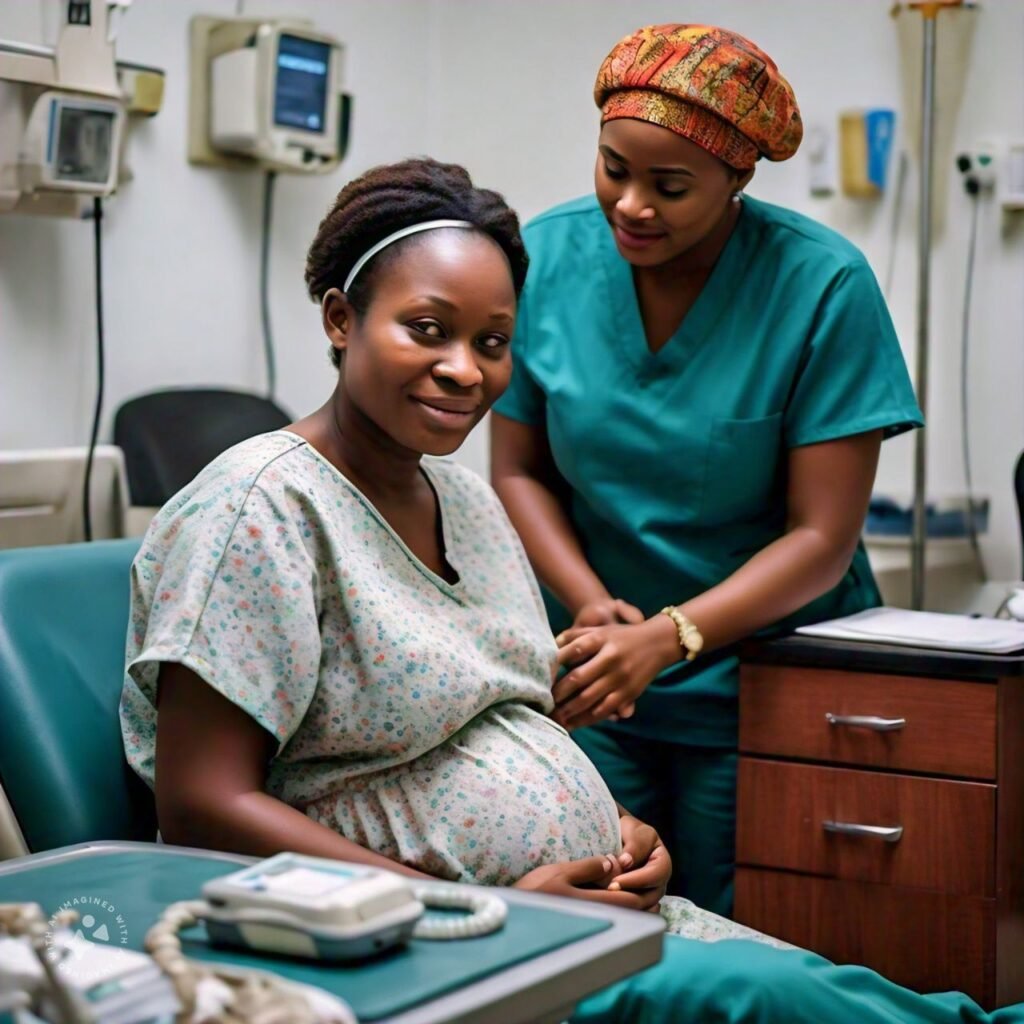
When doctors speak, they catch only silence. When nurses give vital instructions, the words vanish unseen. For them, the journey to motherhood isn’t just about bringing new life into the world – it’s about being understood in a system that speaks a language their hands know but their doctors don’t.
Twenty-six-year-old Bilkisu, a soyabean seller from Gyangyanadze in the Efutu Municipal District of Ghana’s Central Region, is currently pregnant with her second child.
However, the harrowing experience of her first pregnancy still lingers in her mind. From being sidelined during early antenatal visits due to communication barriers to receiving incorrect prescriptions that nearly caused her to miscarry, to enduring labour for nearly six hours, the trauma still brings tears to her eyes.
“On the day of delivery, I got to the hospital around 6:00 pm, but it was midnight before I could deliver my baby. Even then, it took my mother’s intervention to force the nurses to attend to me. The stigma and discrimination, even at the point of care, are terrible,” said the four-months-pregnant woman, who is also married to a hearing-impaired husband.
In contrast, Cynthia Addo, now in her third trimester with her third child, represents a rare success story. As a teacher at the Tetteh Ocloo State School for the Deaf, she has benefited from support systems that many deaf women lack.
“Fortunately for me, my parents are speakers, and whenever I go for a check-up, they ensure I have a family member or friend who works in the hospital to assist me. In all my pregnancies, I’ve never had to change doctors or nurses. I have one team throughout, and whenever I need to visit the hospital, I ensure they are around. But what about the many others who are not as privileged as I am?,” she expressed with concern.
The stories of Bilkisu and Cynthia highlight a broader crisis. Ghana’s estimated 200,000 hearing-impaired individuals form part of the two million Persons with Disability (PWD) population, representing 8% of the nation’s populace.
For deaf pregnant women, the lack of sign language interpreters, inaccessible medical equipment, and insufficient training for healthcare professionals to provide specialised care creates dangerous gaps in maternal healthcare services.
In 2006, Ghana made history as one of Africa’s first countries to pass a Persons with Disability Act (Act 715). This law promised rights to accessibility, employment, and education. By 2012, the country ratified the United Nations Convention on the Rights of Persons with Disabilities (CRPD), committing to healthcare without discrimination.
As a United Nations Member State, Ghana pledged to achieve universal health coverage (UHC) by leaving no one behind and ensuring access to quality health services without financial hardship by 2030, under Sustainable Development Goal 3.
Yet, despite these commitments, the reality remains stark. Several studies on the rights and dignity of PWDs in Ghana reveal disparities, including physical, attitudinal, and financial barriers to healthcare access.
In maternal healthcare, barriers such as inaccessibility, communication challenges, and lack of tailored support services for deaf pregnant women contribute to Ghana’s maternal mortality ratio (MMR) of 319 per 100,000 live births – far above the WHO’s target of 70 per 100,000 live births by 2030.
Mabel Adjei Mintaah, General Secretary of the Ghana National Association of the Deaf (GNAD), confirms reports of many hearing-impaired pregnant women avoiding healthcare facilities and delivering at home due to the attitudinal and communication barriers of healthcare workers.
“There are health workers who make derogatory comments about why a disabled person should have sex and be pregnant in the first place. But deaf people, especially women, have the right to reproductive health and to making families like all other persons,” she emphasised.
Ms Mintaah called for enforcing policies to ensure that all healthcare facilities have at least one sign language interpreter to assist deaf individuals. This, she stressed, is a critical step toward bridging existing gaps and saving lives.
David Awusi, Executive Director of Youth Rise International (YORI), a civil society organisation promoting health equity, expressed concern over the neglect of basic sign language training in medical institutions.
“Additionally, there are no national standard operating guidelines for disability care in the healthcare system. These issues must be urgently addressed to uphold the health rights of PWDs, especially pregnant women and adolescents, and ensure they are treated with dignity,” he urged.
Juventus Duorinaah, Ghana’s first hearing-impaired lawyer and a human rights activist, attributed stigma, discrimination, and marginalisation to the call for amending the PWDs Act of 2006.
“Deaf people and PWDs face numerous stereotypes and discrimination. We urge Parliament to expedite action on the revised bill to ensure it becomes more relevant and responsive to the current needs of PWDs in Ghana,” he stated.
The Programme Coordinator for Disability Inclusion and Healthcare Delivery at the Ghana Health Service (GHS), Patience Ofosuhemaa, explained that Ghana is drafting its first policy on disability inclusion in healthcare delivery. This policy aims to address the gaps faced by PWDs and is expected to be operational by the end of the first quarter next year.
The policy will include training service providers in disability care, creating disability desks at healthcare facilities, appointing at least one sign language interpreter at the district level, and addressing physical infrastructure inaccessibility progressively.
“The GHS initially considered all Ghanaians as one in healthcare delivery. However, a 2022 baseline survey revealed knowledge gaps among health staff, barriers in information dissemination, and issues with physical accessibility. These findings underscore the need for inclusive healthcare,” she said.
With 8.8% of females in Ghana suffering from disability conditions compared to 6.7% of males, Ms Ofosuhemaa stressed the urgent need to bridge existing inequities in healthcare access.
As Bilkisu poignantly remarked, “I just want to be treated with dignity and respect. I want to understand what’s happening to my body and my baby.”
This reporting was completed with the support of the Centre for Journalism Innovation and Development (CJID) in partnership with the Institute for War and Peace Reporting.
BY ABIGAIL ANNOH
News
Cake Tekniks holds 59th graduation ceremony
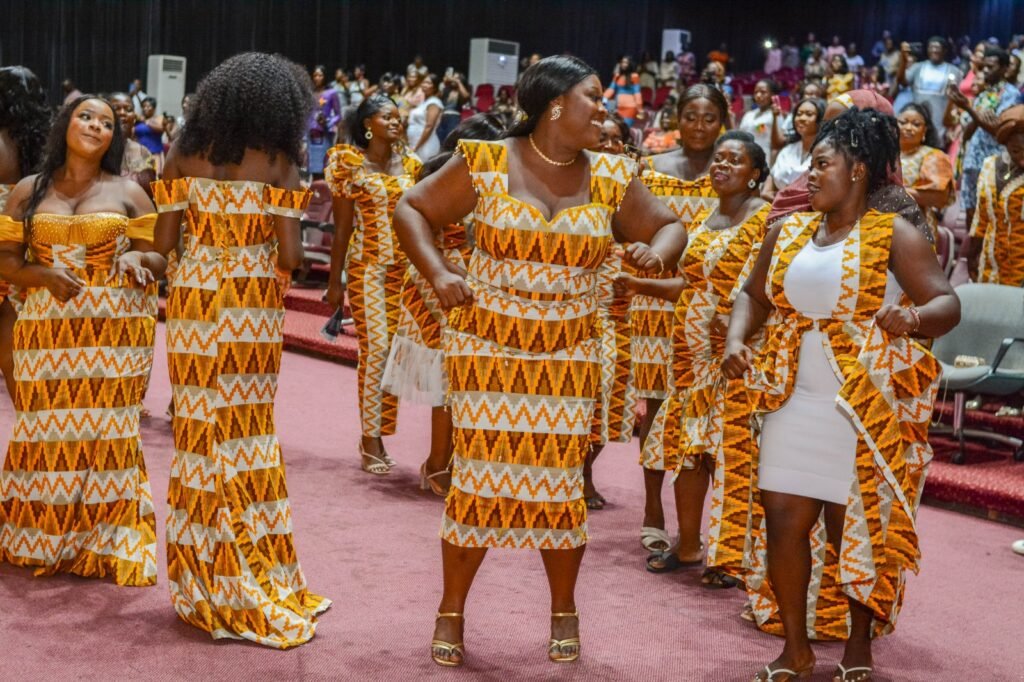
About 30 students on Sunday graduated from the 59th graduation ceremony of Cake Tekniks International, a privately-owned modern cake designing and sugar craft school in Accra.
During the ceremony, all graduates were presented with certificates while 13 of them also received professional diploma.
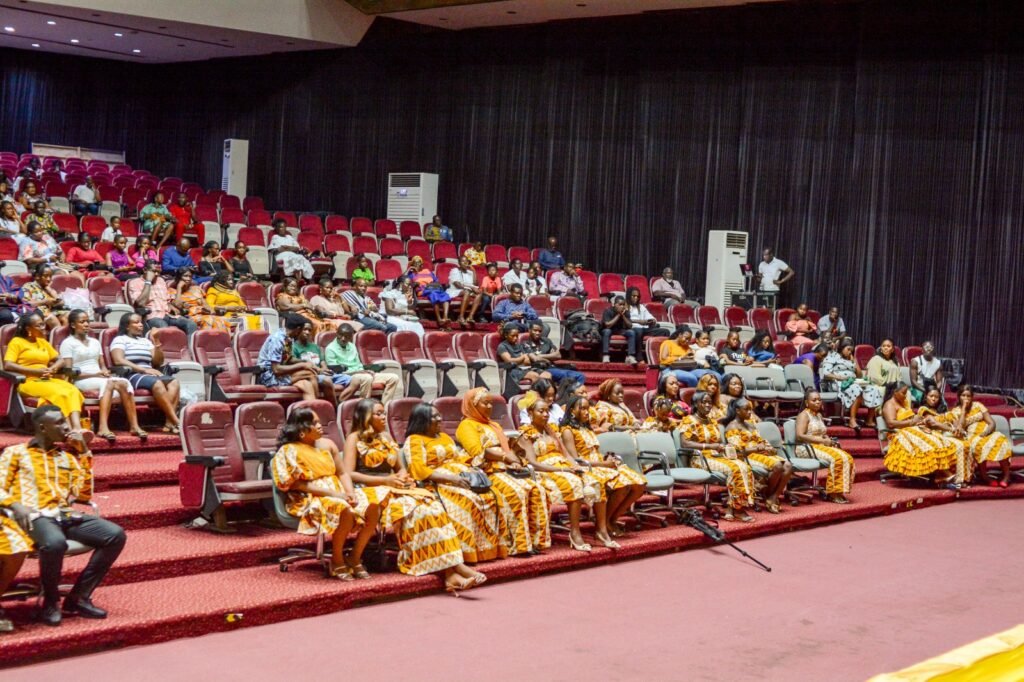
The founder of Cake Tekniks International, Mrs Jane Addo, said her outfit was dedicated to providing world standard skills, knowledge and hands-on training necessary for one to succeed worldwide in the culinary industry.
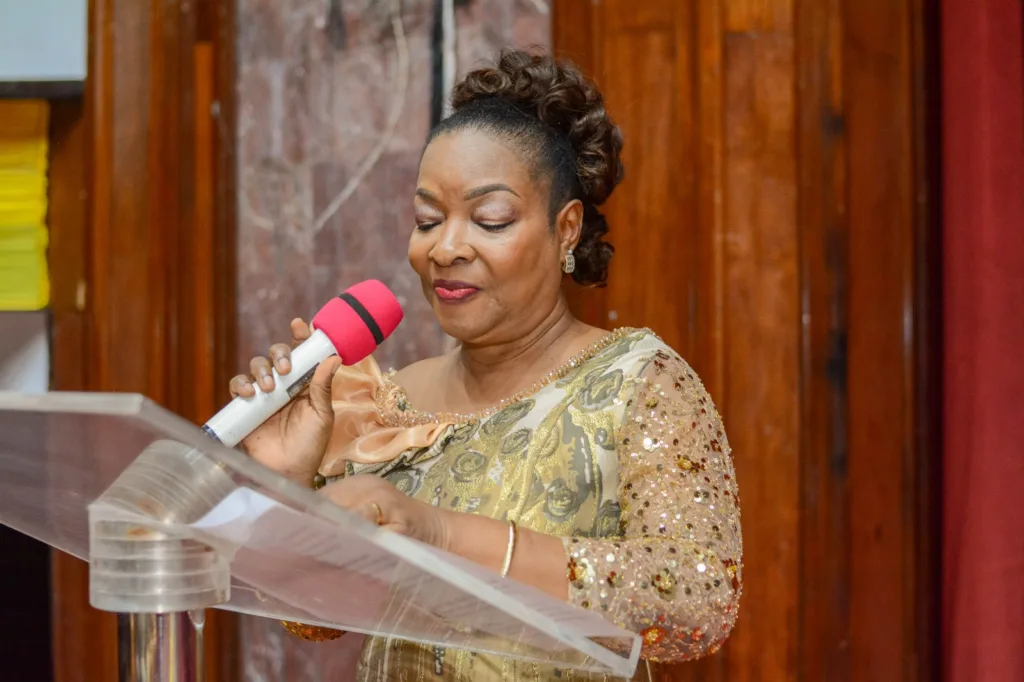
She encouraged the students to embrace the opportunities, challenges and experiences, mindful of the fact that they are well-equipped.
“Hold your heads up while you build a goodwill between your clients and yourselves,” she added.
Mrs Addo said the school was passionate about fostering the culture of creativity, motivation and excellence with the belief that every student had the potential to make a lasting impact in the culinary world.
The founder and leader of QA Consult, Mr Johnson Opoku-Boateng, said graduation was a witness to the unveiling of talents, passion and hard work and testament to months of dedication and hands-on-learning.
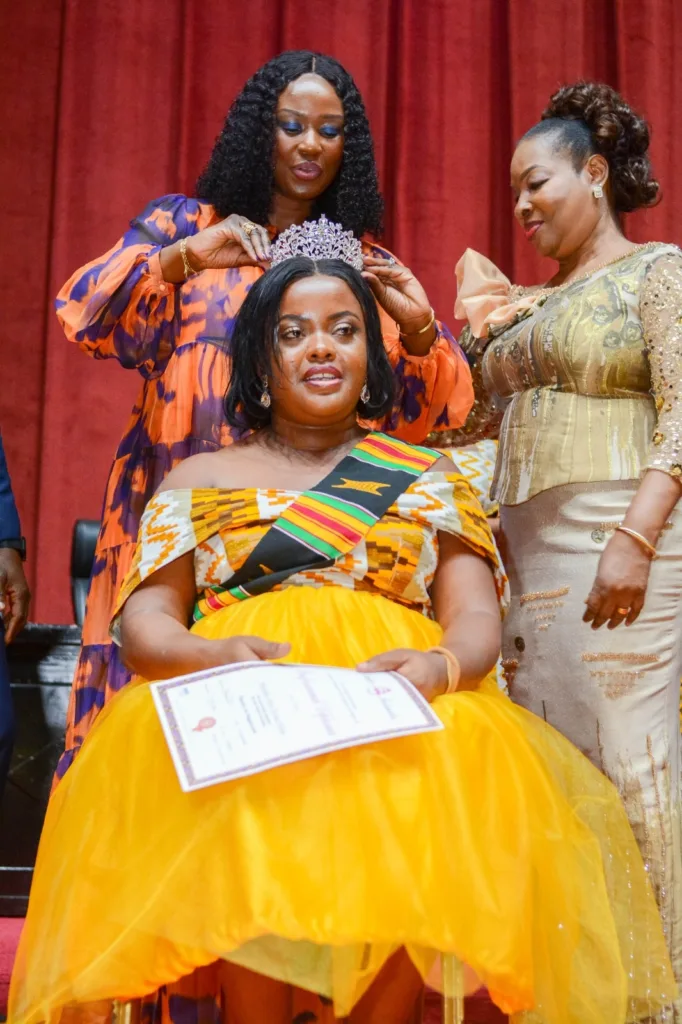

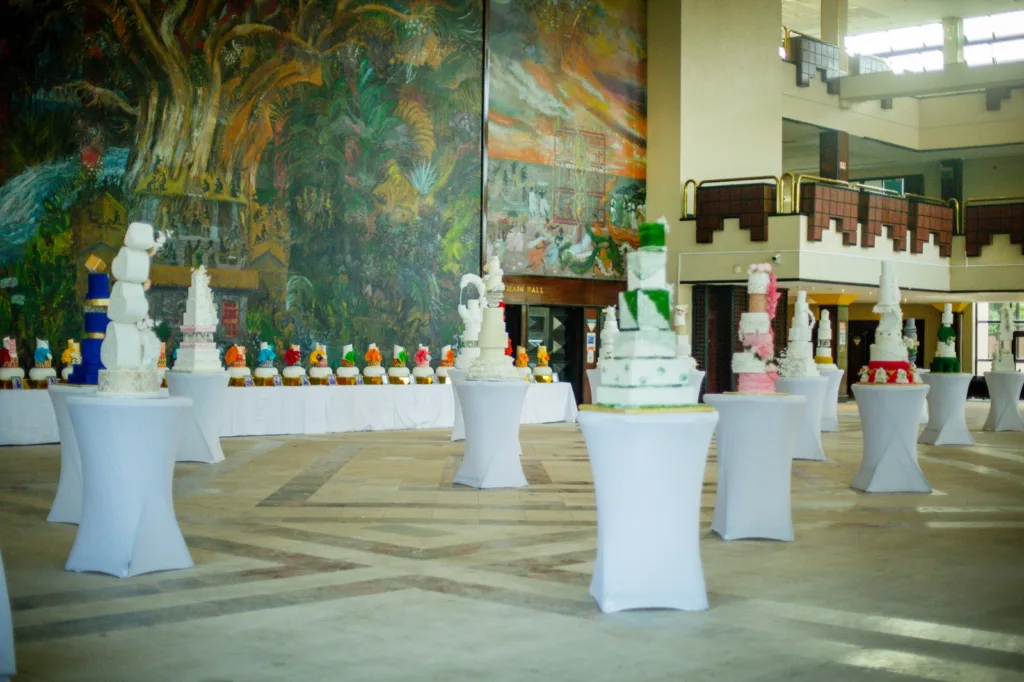
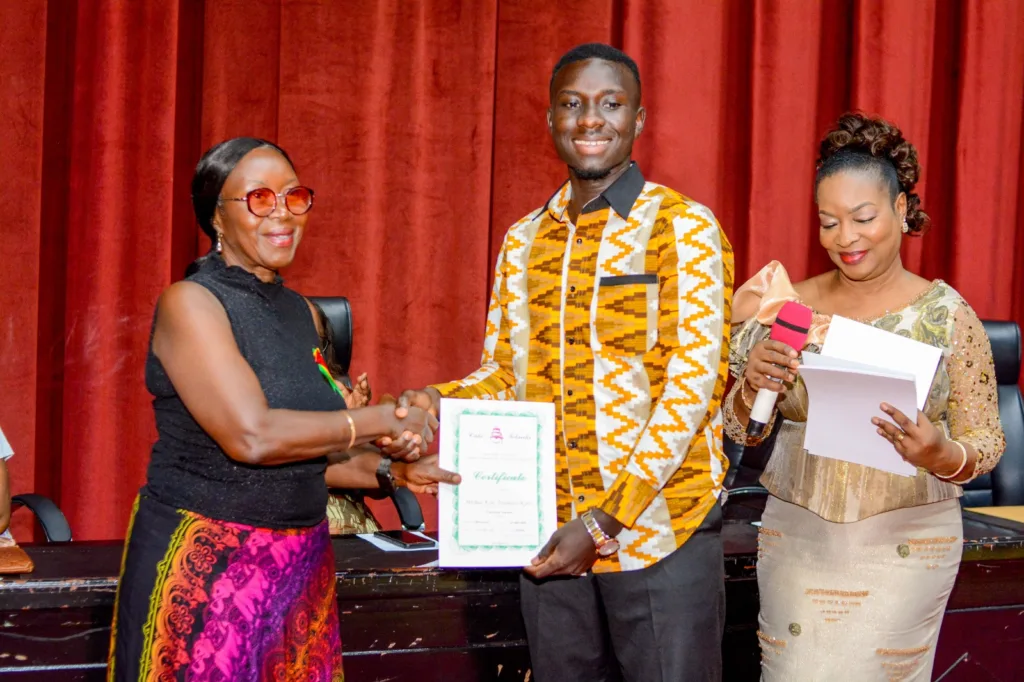

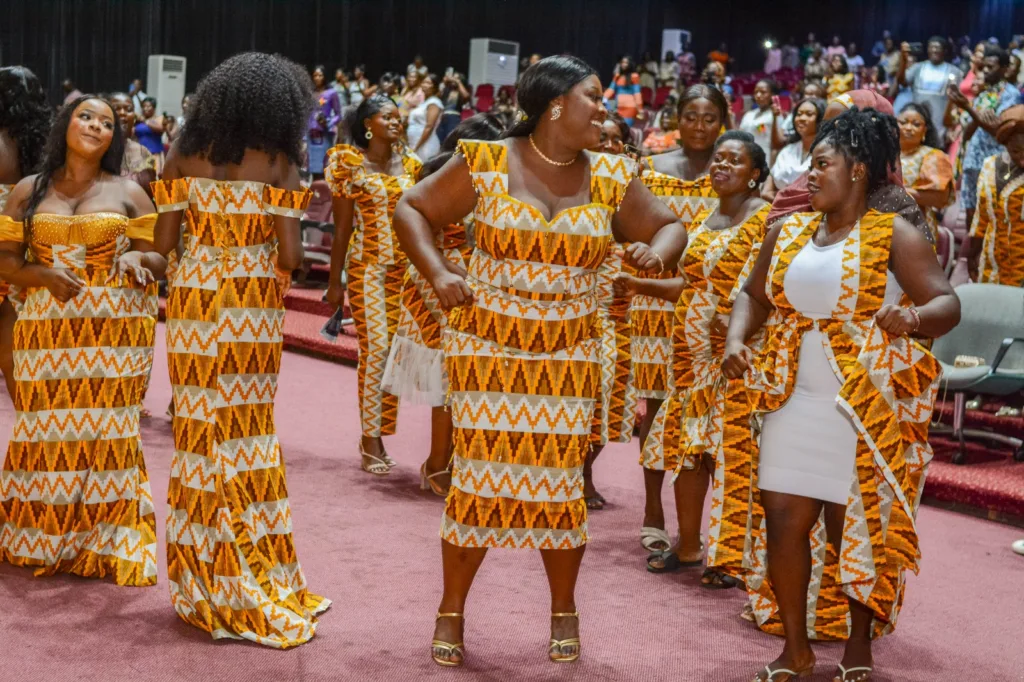
He urged the graduands to ensure that their cakes were safe and good for human health and that their success would be dependent on how well they serve, create and grow.
The event also saw the exhibition of cakes and pastries by the students.


receiving her certificate
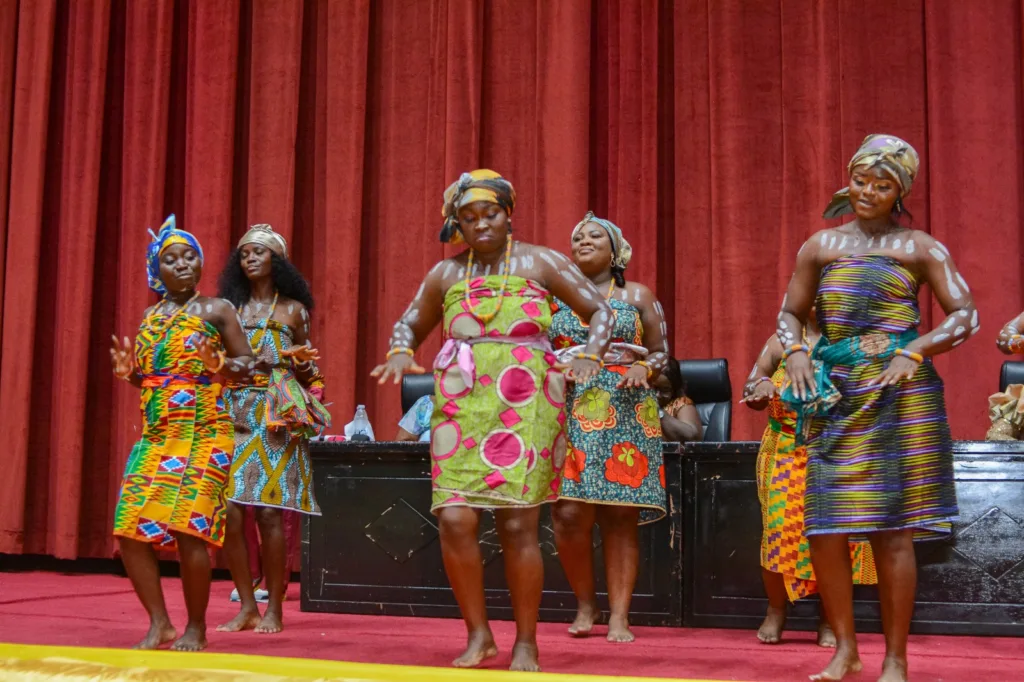
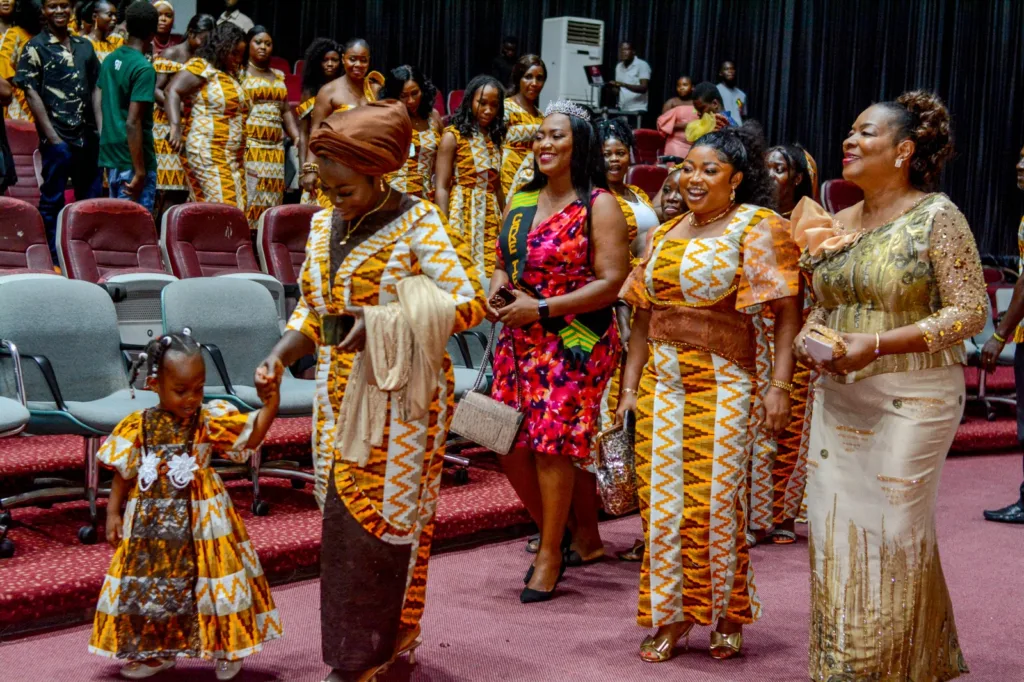
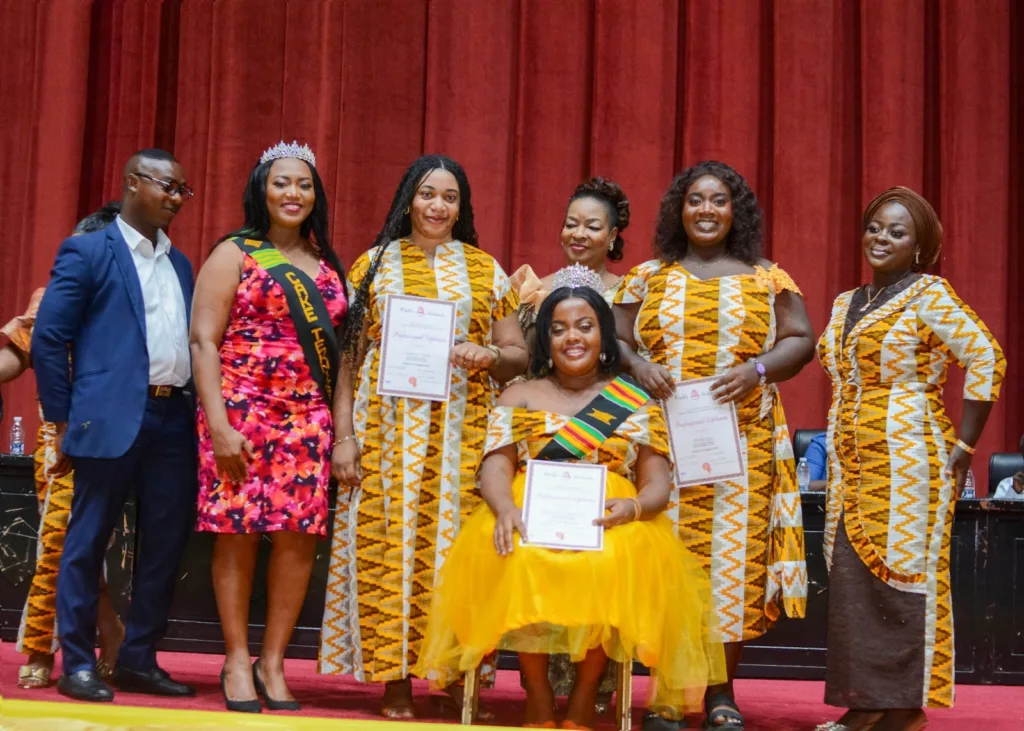
By Esinam Jemima Kuatsinu
News
Debutant Bella Agyemang lauded for Box Office ‘Magic’
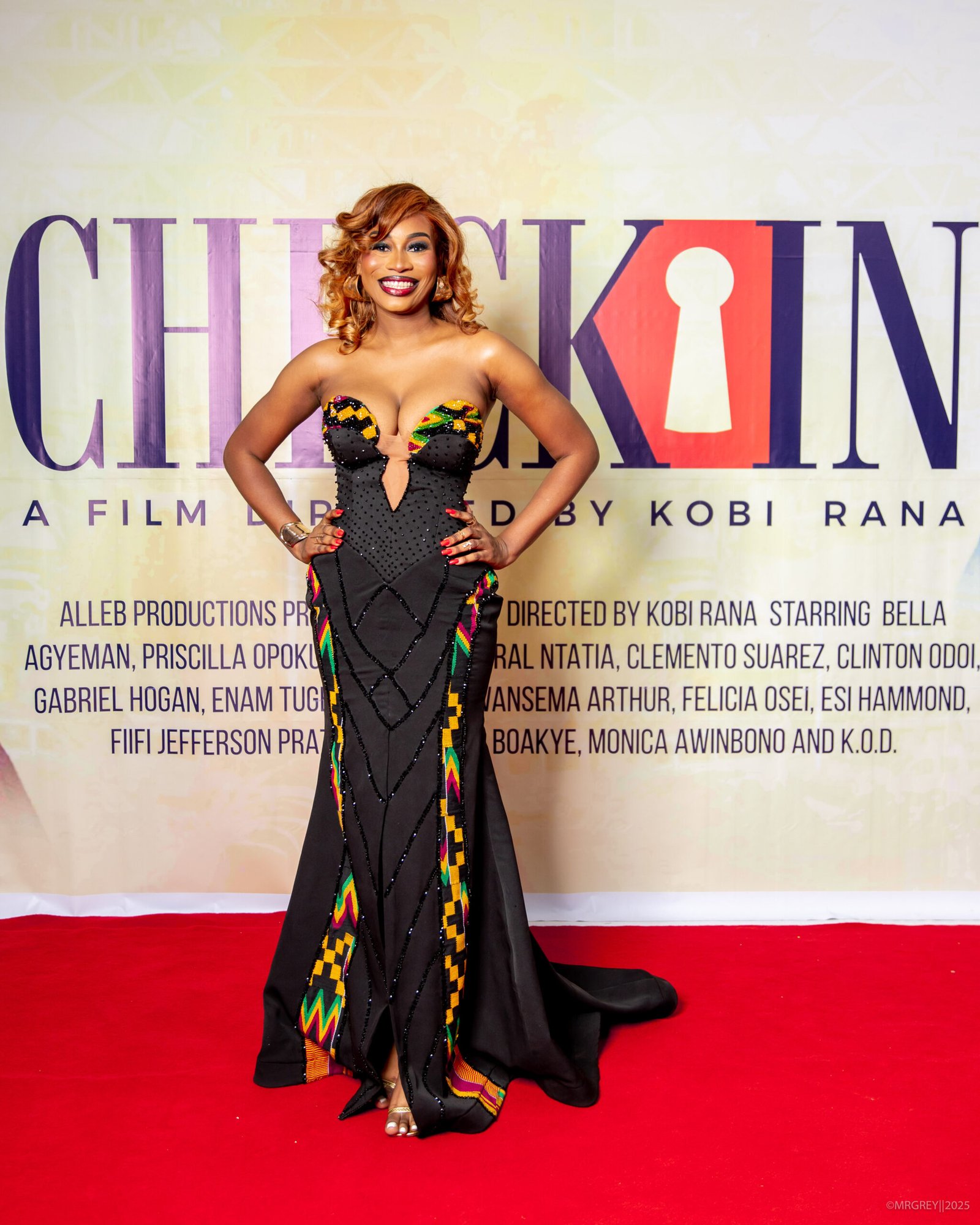
New producer, Bella Agyemang, has been hailed by Silverbird Cinemas and other industry players for her Box Office ‘Magic’ over the weekend.
Bella’s ‘Check In’ movie has received praise for being the first to sell at the cinemas this year.
Speaking to The Spectator, Sales and Marketing Lead at Silverbird Cinemas Ghana, Nana Kwame Obiri-Tete said, for a debutant, Bella Agyemang did fantastically well in her maiden premiere.
He said he was proud of Bella Agyemang’s effort in getting people to show up, adding that she engaged in a lot of marketing activities.
He said her marketing activations on the streets, coupled with other Public Relations endeavours, pointed in the right direction.
“With what she has done, it shows that Bella has a big future. You might have a good product, but if you fail to market it, you cannot get people to patronize. Bella put in a lot of work, which is why she was able to draw a lot of people to the premiere,” Obiri-Tetteh said.
Bella Agyemang, on her part, expressed appreciation to fellow actors, her team, media personalities and all stakeholders who supported her effort ahead of the premiere.
The much-awaited star-studded Ghanaian comedy movie ‘Check-In’ premiered at Silverbird Cinemas on April 12, 2025.
The movie tells a story of chaos and a blackout at a secluded hotel, and amidst these, a resourceful attendant must unravel hidden connections between guests and restore peace before secrets tear them apart.
The movie, produced by Bella Agyemang, featured Kofi Okyere-Darko (KOD), Clemento Suarez, Jeneral Ntatia, Priscilla Opoku-Agyeman, Felicia Osei, Gideon Kojo Boakye, Clinton Odoi, Fiifi Jefferson Pratt, and Gabriel Hogan among others.
By Edem Mensah-Tsotorme


